A particle of mass mand charge q, moving with velocity v enters Region II normal to the boundary as shown in the figure. Region II has a uniform magnetic field B perpendicular to the plane of the paper . The length of the region II is l. Choose the correct choice(s).
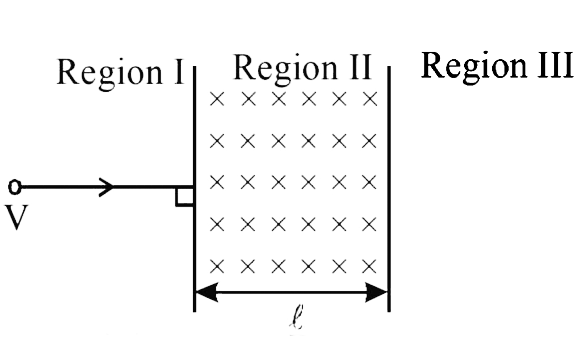
The particle enters region III only if its velocity v>qlB/m
The particle enters region III only if its velocity v<qlB/m
Path length of the particle in region II is maximum when velocity v=qlBm
Time spent in region II is same for any velocity v as long as the particle returns to region I
The correct Answer is:A, C, D
In region II, the magnetic field is uniform and velocity of the particle in region II is normal to the magnetic field, so the particle will describe a circular path of radius r given by, r=mvBq
For particle to enter region III, figure.
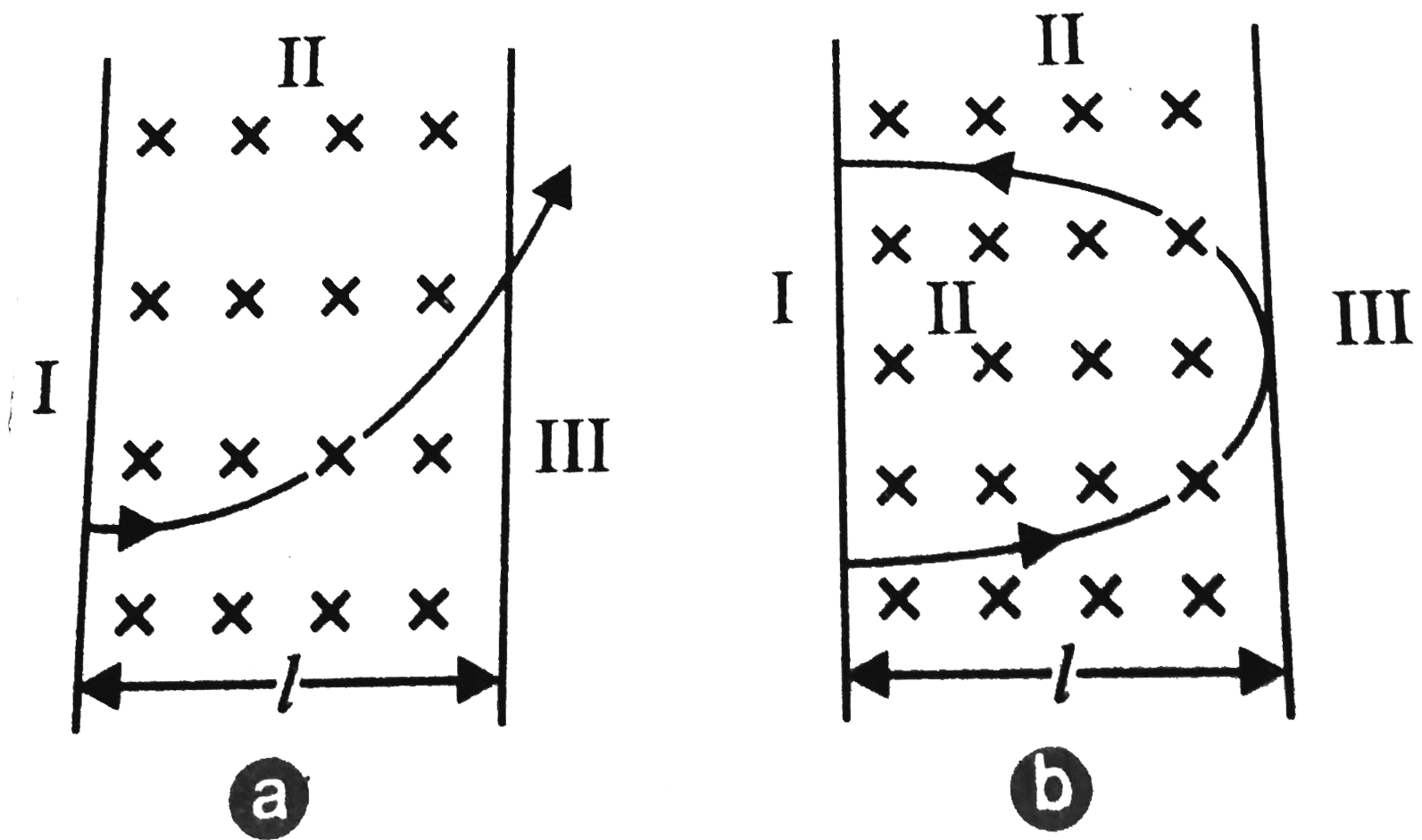
r>l or mvBq>l or v>Bqlm
For path length of particle in region II to be maximum, l=r or m=Bqlm
The time of revolution of charged particle in region II is t=πrv=πlv=πmBq which is independent of v. Therefore, all those particles moving with any velocity, which return to region I, spend the same time in region II.
Topper's Solved these Questions
- MAGNETIC EFFECT OF CURRENT AND MAGNETISMBOOK - PRADEEPCHAPTER - MAGNETIC EFFECT OF CURRENT AND MAGNETISMEXERCISE - Test Your Grip (a)
1 Videos
- MAGNETIC EFFECT OF CURRENT AND MAGNETISMBOOK - PRADEEPCHAPTER - MAGNETIC EFFECT OF CURRENT AND MAGNETISMEXERCISE - Test Your Grip (c)
1 Videos
- MAGNETIC EFFECT OF CURRENT AND MAGNETISMBOOK - PRADEEPCHAPTER - MAGNETIC EFFECT OF CURRENT AND MAGNETISMEXERCISE - Value Based Questions
2 Videos
- ELECTROSTATICSBOOK - PRADEEPCHAPTER - ELECTROSTATICSEXERCISE - ASSERTION-REASON TYPE QUESTIONS
2 Videos
- OPTICSBOOK - PRADEEPCHAPTER - OPTICSEXERCISE - Multiple choice questions
1 Videos
Similar Questions
A particle of mass m and charge q moving with velocity v enters the region of uniform magnetic field at right angle to the direction of its motion. How does its kinetic energy get affected?
View SolutionA circular coil carrying current is placed in a region of uniform magnetic field acting perpendicular to the plane of the coil as shown in figure. The correct choice among the following is
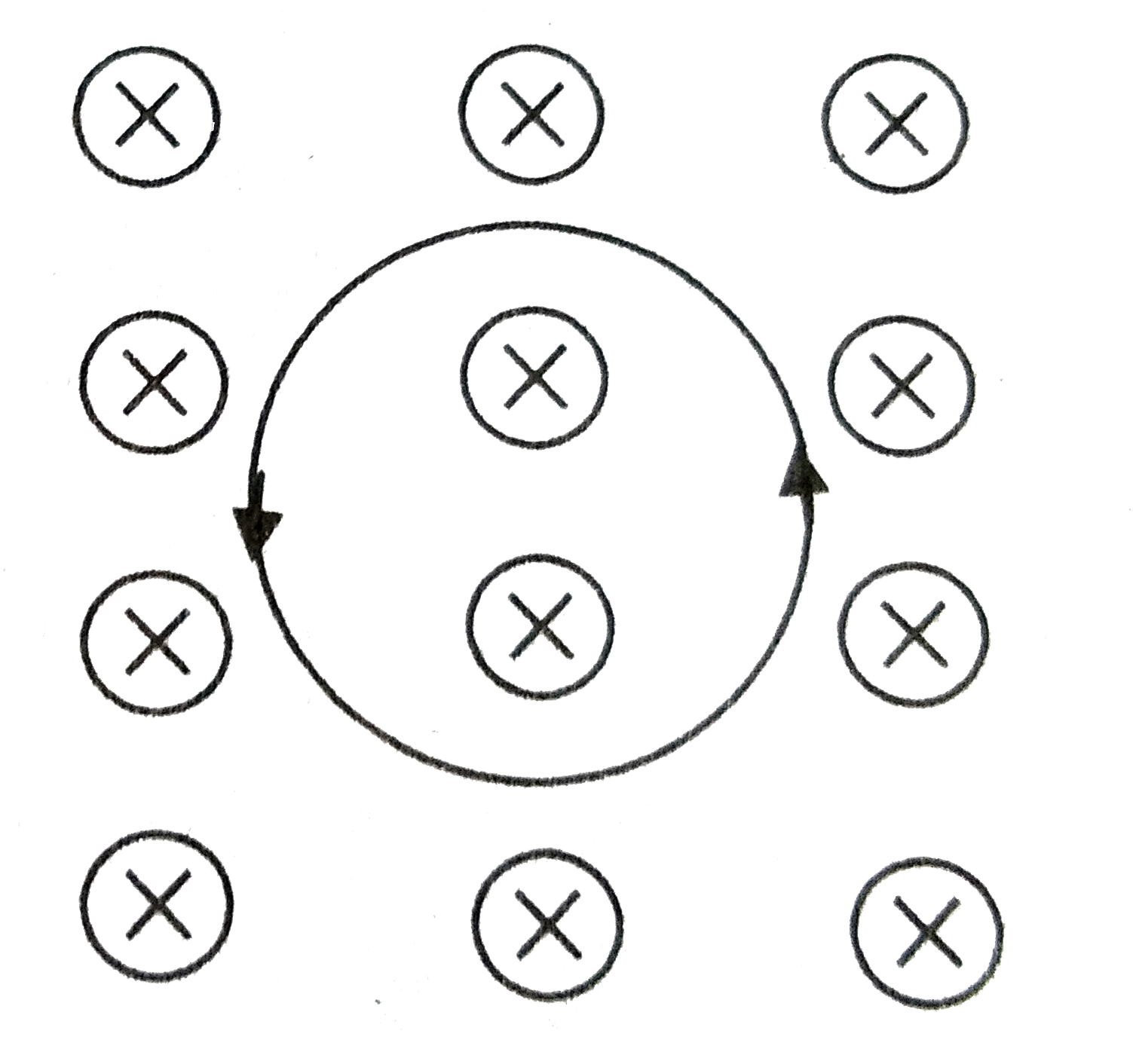
View Solution
Knowledge Check
A particle of mass m and charge Q moving with a velocity v enters a region on uniform field of induction B Then its path in the region is s
AAways circularBcircular, If v×B=0Ccircular,If v.B=0DNone of theseA particle of the mass m and cgharge q moves with a constant velocity v along the positive x−direction.Itentersaregionconta∈∈gauniformmag≠ticfieldBdirectedalongtheminiμmvalueofvrequiredsotˆthepartic≤canjustentertheregion xgtb is
AqbBmBq(b−A)BmCqaBmDq(b+a)B2mAn proton and an electron simultaneously enter into a region in which a uniform magnetic field acts normal to the motion of both the particles. The frequency of revolution of
Aproton is greater than that of electronBelectron is greater than that of protonCproton is equal to that of electronDproton depends on its velocity.
In a region of space a uniform magnetic field perpendicular to the plane of the page and directed towards reader exists. A particle has a trajectory as shown in fig. The particle is-
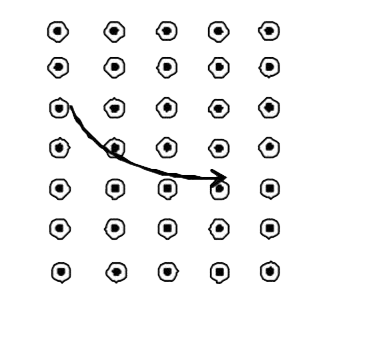
View SolutionA positive charge particle of charge q, mass m enters into a uniform magnetic field with velocity v as shown in the figure. There is no magnetic field to the left of PQ. Find
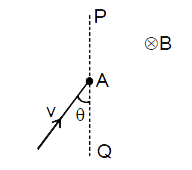
time spent
View SolutionA charged particle ( mass m and charge q) moves along X axis with velocity V0 . When it passes through the origin it enters a region having uniform electric field →E=−Eˆj which extends upto x=d . Equation of path of electron in the region . x>d is :
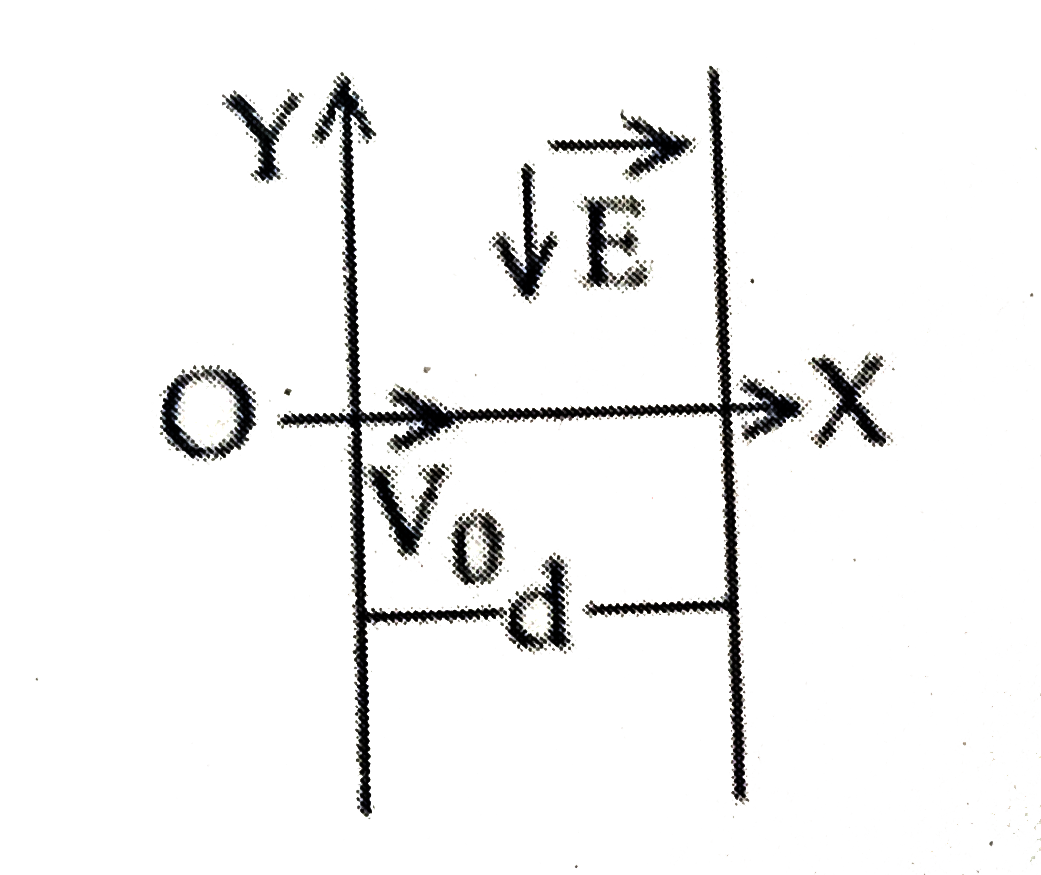
View SolutionA particle of mass m and charge q moves with a constant velocity v along the positive x direction. It enters a region containing a uniform magnetic field B directed along the negative z direction, extending from x=a to x=b. The minimum value of v required so that the particle can just enter the region x>b is
View SolutionA particle of mass m carrying charge q is accelerated by a potential difference V. It enters perpendicularly in a region of uniform magnetic field B and executes circular arc of radius R, then qm equals
View Solution
